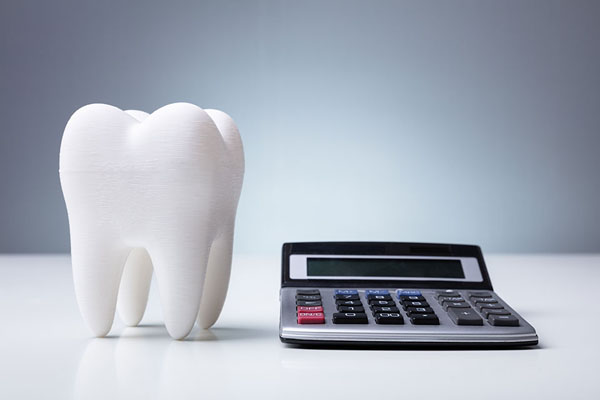Tooth Extraction Costs
What You Need to Know About Tooth Extraction Cost
Tooth extraction is a common dental procedure that involves removing a tooth from its socket in the jaw bone. While it may seem like a straightforward process, understanding the various factors that influence the cost of tooth extractions is crucial for patients seeking this treatment.
From the type of extraction to the dentist’s experience and location, several elements can impact the overall cost. The variety of dental services involved in tooth extraction, including the initial consultation, the extraction procedure itself, and any follow-up care, can also affect the overall cost and experience.
This comprehensive guide aims to provide insights into the average costs associated with tooth extractions and explore the factors that can influence these expenses. If you have any questions about the cost of tooth extractions or would like to schedule an appointment, contact our Jupiter dentist today by calling (561) 744-0677.
How Much Does Tooth Extraction Cost?
Facing a tooth extraction can be daunting, not only due to the procedure itself but also because of the costs involved. Understanding the factors that influence tooth extraction costs and the different types of extractions can help you make informed decisions and better prepare for the financial aspect of this essential dental care.
Typically, a basic tooth extraction can cost anywhere between $130 and $250 on average, with higher costs associated with the removal of impacted teeth. Among all types of tooth extractions, the most expensive tends to be the extraction of wisdom teeth, which can range from an average of $1,000 to $3,000 per tooth.

Factors Influencing Tooth Extraction Cost
A multitude of factors can influence tooth extraction costs, including:
The Type of Extraction
Tooth extractions typically fall into two categories: simple extractions and surgical extractions. While simple extractions involve removing fully erupted teeth without surgery, surgical extractions are performed on severely decayed or impacted teeth and require more extensive procedures, often involving an oral surgeon for complex cases.
The complexity of the procedure, the condition of the tooth, the type of anesthesia required for oral surgery, and the duration of the procedure all contribute to the cost. Oral surgery can significantly affect the overall cost due to the specialized care and anesthesia involved.
Location and Cost of Living
Prices can vary widely depending on the region and cost of living, as dental service fees are often influenced by local economic conditions, overhead costs, and the availability of dentists in the area. Metropolitan areas and cities with a higher cost of living tend to have higher tooth extraction costs compared to rural or suburban areas.
Experience and Expertise of the Dentist
The level of experience and expertise of the dentist performing the extraction can impact the final cost. Generally, more experienced practitioners with specialized training or a reputation for high-quality care tend to charge higher fees.
Dental Insurance Coverage and Plan Details
While many dental insurance plans cover at least a portion of tooth extraction costs, your out-of-pocket expenses will depend on the specifics of your policy, including deductibles, copays, coverage limits, and whether the dentist is in-network or out-of-network. Reviewing your dental insurance plan is crucial to understanding what portion of the cost will be covered and your responsibility for out-of-pocket payments.
Breaking Down Costs
Simple Extractions
Simple tooth extractions involve the removal of fully erupted and non-impacted teeth without the need for surgery. This type of extraction is less invasive than surgical extractions and generally costs less. The average cost of a simple extraction ranges from $75 to $200.
Remember, these costs are applicable for patients without dental insurance. If you have dental insurance, your out-of-pocket expenses for a simple extraction may be significantly lower, as most dental insurance plans at least partially cover tooth extractions.
Surgical Extractions
Surgical tooth extractions are more invasive procedures used for severely decayed, impacted, or wisdom teeth that can’t be removed through a simple extraction. Due to their complexity and the additional steps involved, such as potential bone removal or gum surgery, surgical extractions typically cost more than simple extractions, ranging from $180 to $550 per tooth.
Wisdom Teeth Removal
Wisdom teeth removal is often the most expensive type of tooth extraction, with costs averaging around $1,000 to $3,000 per tooth or $3,000 to $4,500 for all four wisdom teeth. These costs can vary depending on the complexity of the extraction, the location, the type of anesthesia required (local or general), and whether the wisdom teeth are impacted or not. Impacted wisdom teeth, which are teeth that fail to erupt properly and remain partially or fully trapped in the jawbone, typically require more extensive surgical procedures, leading to higher costs.
Dental insurance may help cover a portion of the costs associated with having your wisdom teeth removed, depending on your specific policy and coverage limits.
Dental Insurance Coverage
Dental insurance typically covers medically necessary tooth extractions, which include most simple and surgical extractions, as well as wisdom teeth removal. However, coverage rates and reimbursement amounts can vary depending on the individual policy and whether the dentist is in-network or out-of-network. On average, dental insurance plans cover 50 to 80 percent of tooth extraction costs, with the patient responsible for the remaining portion.
It’s crucial to review your dental insurance plan carefully to understand your specific coverage and any applicable restrictions, such as annual maximums, waiting periods, or exclusions for certain procedures. Some plans may have limitations on the number of extractions covered within a specific time frame or require a waiting period before coverage begins. Additionally, some insurance providers may require pre-authorization or referrals for certain procedures, so it’s essential to follow the proper protocols to ensure coverage.
Managing Tooth Extraction Costs Without Insurance
If you don’t have dental insurance or your policy doesn’t cover tooth extractions, there are still options available to help manage the costs. One option is to seek treatment at a dental school, where dental students provide services under the supervision of licensed dentists at a reduced cost.
Another alternative is enrolling in a dental savings plan, which can provide nationwide savings with more than 100,000 dentists participating. Dental savings plans offer discounts on dental procedures, helping to reduce the average cost of care.
Payment plans are another option for managing tooth extraction costs without insurance. Many dental offices offer payment plans that allow patients to pay for their dental care in installments, spreading the costs over time. Additionally, some dental practices may offer cash discounts for patients who pay upfront for their dental work. Discussing these options with your dental care provider to determine the best approach for your financial circumstances and dental needs is vital.
Tooth Extraction Alternatives
Depending on the condition of the tooth and the patient’s overall oral health, alternative treatments may be considered.
A root canal is a dental procedure in which the damaged or infected pulp of a tooth is removed, and the inside of the tooth is cleaned and sealed. This treatment can help preserve the natural tooth and prevent the need for extraction, as well as protect against tooth decay. Similarly, a dental crown is a type of restoration that encases the entire visible surface of a tooth, reconstructing its shape, strength, and appearance.
These options may be more suitable for some patients, depending on their specific dental needs and overall oral health. Consulting with your dentist to determine the best course of action for your unique situation is crucial.

Frequently Asked Questions
Yes, your dentist can pull an infected tooth — generally, the sooner they extract it, the better. This allows them to relieve pain and provide a predictable resolution to the infection in your mouth, either by extraction, root canal, or a deep cleaning if it’s in the gums.
In general, a tooth extraction tends to be less expensive than a root canal because it’s a simpler procedure. However, it’s essential to consider the long-term consequences and costs. If a tooth can be saved through a root canal, it may be a more cost-effective option in the long run because it eliminates the need for tooth replacement. Extraction, on the other hand, often requires a dental implant, bridge, or denture to fill the gap, which can add to the overall cost.
Affordable Tooth Extraction at Al Villalobos, DMD, PA
We know that dental work can be intimidating due to the costs associated with it. However, at Al Villalobos, DMD, PA, we’ll help you get the care you need. If you need a tooth extraction, contact our Jupiter dental office today by calling (561) 744-0677 to schedule an appointment. Conveniently located near West Palm Beach’s Northside areas, including Hobe Sound, Tequesta, and more, our practice offers accessible general dentistry services.
